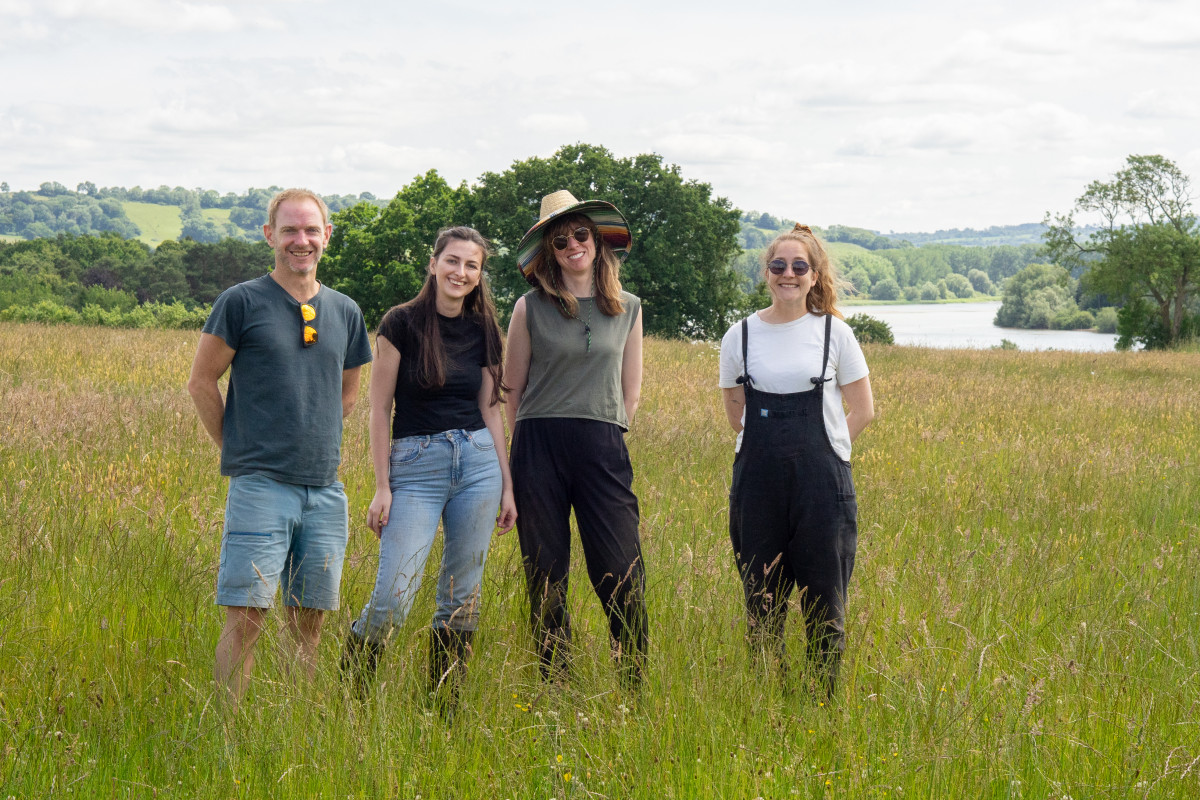It’s Springtime and our bumblebee friends are emerging from hibernation which is always an exciting time of year for those of us who volunteer for the Wildlife Group at The Farm! These early explorers will mostly be the young queens that hatched late last summer – they’ve survived the winter and are now out and about - and hungry!
Volunteers at The Farm have already been busy prepping the nectar rich flower beds to welcome the furry pollinators…..and this month we completed the first of this year’s BeeWalks.
So what’s a BeeWalk?
BeeWalk is a national recording scheme, run by the Bumblebee Conservation Trust, to monitor bumblebee populations as this hugely important pollinator has been declining in numbers across the country. Between March and October volunteers across the country carry out monthly walks, along a set route, and identify and count the bumblebees they observe. This data is essential as it helps to better understand just how widespread the problem is, and guides how to focus The Conservation's essential work.
For the last few years The Community Farm’s Wildlife Group, keen to support citizen science, has been contributing to the scheme by carrying out these monthly walks, taking note of not just the bumblebees, but the flowers they visit to help plan future planting. On our early season walks we don't tend to record too many - numbers tend to peak in the summer along with the warm weather and plethora of flowers which attract these lovely insects. This is such an enjoyable time to carry out a BeeWalk as The Farm's alive with activity and everyone is out and about enjoying the sun - along with the bees!
Next time you drop in to shop at The Veg Shed on a Saturday (10am-2pm!) spend a few minutes by the the pollinator-friendly flower bed and see who’s visiting!
By Annie Price
The Community Farm Wildlife Group and Management Committee Member
Did you know...
Bumblebees used to be known as 'humblebees' (check out your Shakespeare!)
The Latin name for the bumblebee genus is Bombus meaning a loud buzzing or booming noise (I wonder why!)
Bumblebees originally evolved in the Himalayas – they have thick fur and can warm themselves by shivering their flight muscles – so can tolerate colder temperatures.
Britain has 24 species of bumblebee, seven of which are seen regularly at The Farm!
Mythbuster...In the unlikely event that a Bee stings you it won't die!
If you're interested in taking part in our Wildlife Group activities take a look here for more information.
Join our Wildlife celebration day on Saturday 19th July! Find out more
About Us
- Home
- About Us
- News from The Farm
- BeeWalks are back!

Search
BeeWalks are back!
- Details

Our Most Popular Boxes
Do we deliver to you?
We deliver to Bristol, Bath, Chew Valley, Weston-Super-Mare, Frome and plenty of places in-between!
The Community Farm
Denny Lane
Chew Magna
Bristol BS40 8SZ
Our Outlets
Saturdays 9am-2pm
The same wonderful, organic produce that goes into our veg boxes is available for sale at The Farm's Veg Shed.
The Community Farm is a not-for-profit organisation, registered with the Financial Conduct Authority as a Community Benefit Society.
Our registration number on the Mutuals Public Register is 31018 R. Our companies Number at Companies House is IP031018
© 2025 The Community Farm












